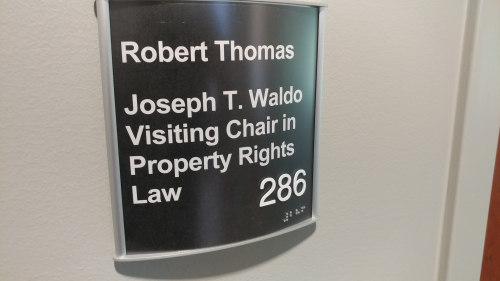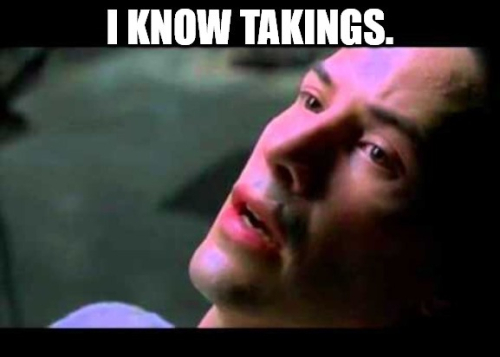We’re about to get underway with the fall semester at William and Mary Law School, where we’re again teaching an upper-division course, Eminent Domain and Property Rights.
We’ve more than doubled the size of last year’s enrollment, so it looks like the word is getting out. We cover not only eminent domain and just compensation, but takings (yes, we have a lot of new materials to cover there), civil forfeiture, a small bit of crossover with land use, local government, and related, property rights as civil rights, how property law is discussed in the public sphere, due process, and how to lawyer up these cases. And in early October, the opportunity to have some of the nation’s best property law scholars “guest lecture” during the Brigham-Kanner Property Rights Conference. Here’s the official description:
Property rights and the sovereign’s power of eminent domain have been essential components of Anglo-American law for centuries, and the protection of the right of private property ownership is one of the foundations on which the U.S. Constitution, the Bill of Rights, and the post-Civil War Amendments are built. This course will introduce students to the practical lawyering and analysis necessary for eminent domain practice, including the nuts and bolts of takings practice as well as the study of recent (and ongoing) U.S. Supreme Court cases. In addition, this course will focus on the history, policy, and, to some extent, the politics of property rights, eminent domain law, and related legal topics. We will examine how the right of private property was developed in common and constitutional law, the relationship of property rights to other civil rights and the sovereign’s power to take land, the role of federal and state courts in protection of property rights, how private property squares with environmental law, and the proper ‘place’ of property rights in the modern administrative state. Course materials will be cases and selected portions of books and journal articles, and other materials which will be made available. Grading will be based on a take home paper and class participation.
Students: it’s not too late to join (add/drop will commence soon after the first day of classes). We can’t promise that you will gain instant knowledge of the subjects, but can guarantee a rewarding semester taking a deeper dive, coming out of it in December with a greater appreciation of this area of law, and a working understanding of what it takes to actually practice.

